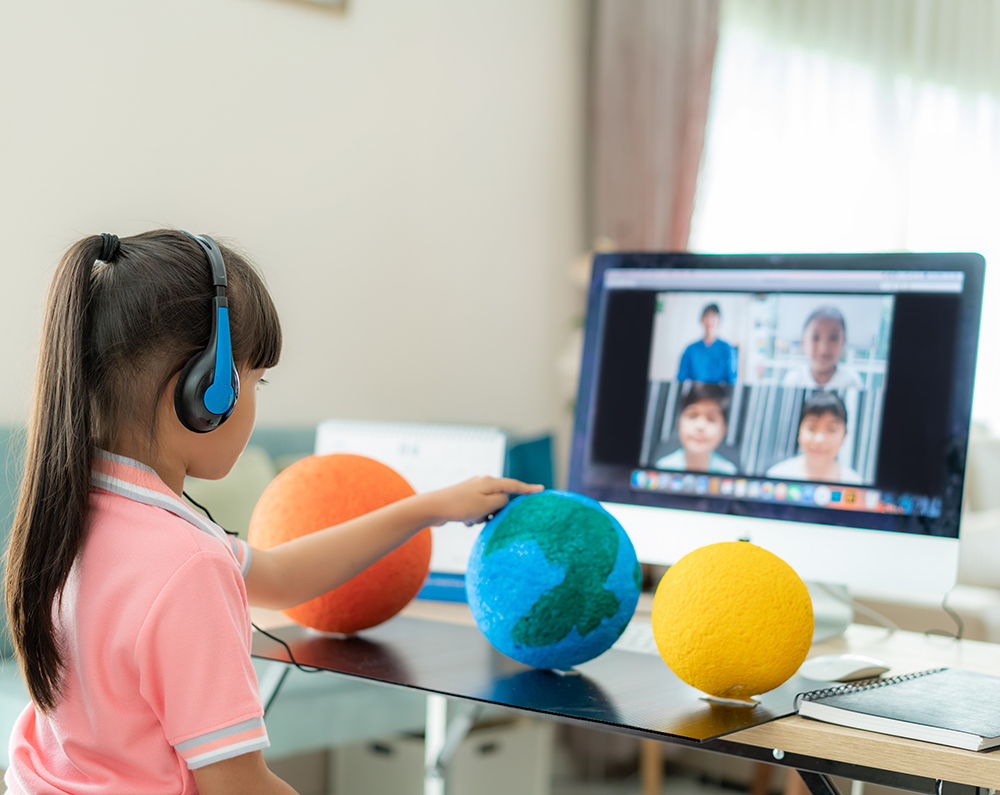AI is shaking things up across industries; AI in pharmaceuticals is no exception. From speeding up drug discovery to fine-tuning treatment plans, AI is changing how the industry works—faster, smarter, and more efficiently than ever.
Also, based on the findings by PWC, by 2030, pharmaceutical companies stand to unlock a massive $254 billion in additional annual operating profits—provided AI becomes deeply embedded across operations and processes. The more AI-driven solutions scale up, the more significant the financial impact, transforming everything from drug discovery to supply chain efficiency.
Pharmaceutical companies are tapping into AI’s potential to crunch massive amounts of data, identify promising drug candidates, and even personalize treatments precisely. The result? Faster development, reduced costs, and groundbreaking innovations in patient care.
But like any game-changing technology, AI in pharma has its challenges. Data privacy concerns, complex system integrations, and the need for specialized skills all come into play. Navigating these hurdles is just as crucial as harnessing AI’s benefits.
In this article, we’ll dive into how AI technology revolutionizes the pharmaceutical industry, its most significant opportunities, its most formidable challenges, and what’s next for AI-driven innovation in this highly regulated space.
AI is revolutionizing the pharmaceutical industry, reshaping everything from drug discovery to production. With machine learning crunching massive datasets, researchers can spot promising drug candidates in record time—far faster than traditional methods.
Beyond discovery, AI can predict how different compounds interact in the body, cutting down on costly preclinical testing and accelerating the journey from lab to market. AI is streamlining the entire development process by automating repetitive tasks and refining predictions.
It’s also a game-changer for personalized medicine. AI-driven insights help create treatments tailored to a patient’s unique genetic makeup, improving effectiveness while minimizing side effects. As this technology continues to evolve, it’s making drug development smarter, faster, and more accessible than ever before.
AI in pharma isn’t innovation—it’s a competitive advantage. From accelerating drug development to intelligent trials and tailored care, AI is transforming the industry and drawing top talent.
Predictive Maintenance for Medical Equipment : AI enables preventive maintenance, reducing equipment downtime and increasing patient safety.
AI-Enabled Diagnostics: Enhances clinical accuracy by detecting patterns and abnormalities in imaging and laboratory results.
Smart Patient Triage: Prioritizes patients based on immediate patient data utilizing intelligent algorithms.
Individualized Treatment Plans: Utilizes data analytics to tailor therapies for improved outcomes and efficiency.
Medical device companies use AI for easy compliance and efficient product performance tracking.
AI in this industry is bringing personalized medicine to life! Through the analysis of genetic information, patient history, and lifestyle, AI assists in developing treatment plans that are customized to the individual—no more one-size-fits-all treatment—just more innovative, more efficient therapies with fewer side effects.
With AI forecasting how patients react to various treatments, physicians can make more informed decisions, resulting in better outcomes and a more accurate, patient-centered healthcare experience.
Artificial intelligence in pharma is changing medicine production, making it more intelligent, quicker, and more efficient. AI can forecast machinery problems before they occur, keeping production uninterrupted and saving time on expensive downtime.
It also simplifies manufacturing operations—maximizing schedules, reducing waste, and guaranteeing each batch exceeds the highest standards of quality. The outcome? More consistent medication, cost reduction, and a more efficient supply chain that stays ahead of demand.
AI is making patient monitoring smarter and more proactive! Through wearable devices and mobile apps, it tracks health data in real-time, detecting early warning signs of trouble before they become full-blown problems.
It also assists patients in adhering to their treatment plans with customized reminders and encouragement. By improving adherence and allowing timely interventions, AI for the pharmaceutical sector increases treatment success while reducing complications and healthcare expenses.
AI is taking clinical trials to the next level! By reviewing historical trial data and live patient information, it identifies the correct participants more quickly, reducing recruitment time and expense.
It doesn’t end there—AI monitors patient responses in real-time, catching problems early and enabling trial protocols to adjust in the moment. The outcome? Smarter, more effective trials with a greater likelihood of success!
Artificial intelligence in pharma is transforming everything from discovery to patient management into something smarter and more efficient. Increasing numbers of pharma corporations are adopting AI, accelerating development and simplifying complicated processes.
From accelerating drug discovery to streamlining clinical trials and designing treatments for personalized patients, AI is making big impressions. Take a look at some of the most significant uses and the breakthrough advantages they make possible!
AI is transforming the conduct of clinical trials, making them smarter, faster, and more efficient. They used to be long, costly, and complex in the past—but AI has turned the tables.
AI can identify ideal trial participants through huge volumes of patient data, making recruitment easier and guaranteeing patients are the best fit for the treatment being tested. Not only does it make the process faster, but it also increases accuracy.
Once a trial is underway, AI monitors patient reactions around the clock, alerting on possible side effects or unusual reactions in real-time. It can even sort through electronic health records, social media, and medical forums to identify hidden dangers and drug interactions, enhancing pharmacovigilance efforts.
The most significant impact of AI in pharma is how it revolutionizes drug discovery and development.
Historically, discovering new drugs took years and enormous sums of money. Today, AI is reducing the complexity, enabling scientists to detect possible drug candidates faster and more accurately.
By examining huge chemical, biological, and clinical data datasets, AI can forecast how molecules will behave with biological targets—identifying the most promising candidates for new medicines. It also evaluates drug effectiveness and possible side effects early on, cutting expensive failures later on and accelerating the path from laboratory to patient.
Every patient does not react the same to drugs, so that’s where the future of AI in pharmaceuticals is revolutionizing. There is no one-size-fits-all strategy; no AI looks at each patient’s unique data—such as genetics, lifestyle, and medical history—to determine what’s best for that individual.
With AI-driven intelligence, physicians can fine-tune treatments best suited for one patient while lowering side effects. Sophisticated algorithms also find genetic markers for diseases, pointing the way toward precision medicine. The outcome? More precise therapies, improved health outcomes, and a move towards genuinely personalized health care.
Remaining compliant in the constantly changing AI and pharma landscape doesn’t have to be a headache. AI-based solutions can automate the review of documents, highlight inconsistencies, and verify processes comply with stringent regulatory guidelines. With NLP and ML, businesses can respond rapidly to new regulations, mitigating risks and avoiding expensive penalties. And AI monitors regulatory changes, enabling pharma companies to stay one step ahead and remain compliant effortlessly.
AI is transforming pharma, but its adoption comes with challenges. Let’s explore the key considerations.
Privacy of data is the biggest challenge while implementing artificial intelligence in pharma. Compared to other sectors, pharma has extremely personal patient data that needs to be protected against misuse and unauthorized use.
Tight regulations such as GDPR in the EU and HIPAA in the US raise the bar for data protection, guaranteeing patient data is processed securely. To remain compliant and gain trust, pharmaceutical firms must use robust encryption, secure storage, and strict access controls to protect data from cyber-attacks.
Implementing AI in the pharmaceutical sector successfully is not only a matter of having the proper technology—it’s about having the right people. Data scientists, AI professionals, and machine learning engineers are essential to creating and maintaining these systems. However, attracting and keeping the best talent is difficult in the competitive job market.
To fill this void, pharma companies must invest in upskilling current employees and facilitating teams to gain the requisite knowledge to leverage artificial intelligence in pharma.
Applying AI in pharma is a big issue, especially regarding ethics in decision-making. When algorithms are used to develop drugs or treat patients, they must be transparent and fair. But making them fair isn’t always simple, as AI models can learn biases from the data they are trained on.
To address this, you should employ ethical standards and maintain human oversight, making AI-driven decisions that are responsible, fair, and in line with industry standards.
One of the biggest challenges in AI and pharma is the scarcity of high-quality, well-annotated medical data needed to train good models in clinical trials. Without it, the effectiveness of AI can be undermined, which could impact trial results and patient safety.
To address this, pharma firms can investigate safe data-sharing partnerships without compromising patient privacy. Further, synthetic data and sophisticated augmentation methods can assist in generating varied training sets and thus make AI models more trustworthy for clinical use.
Korcomptenz is a Microsoft Gold Partner, Microsoft AI Cloud Partner, and Fabric Partner with specialization in Azure Analytics. We contribute 20+ years of experience in developing bespoke solutions with state-of-the-art AI. We design customized solutions that speed up drug discovery, maximize clinical trials, and streamline operations, empowering pharmaceutical businesses to make wiser, data-enlightened decisions.
With a history of numerous healthcare solutions, we allow you to innovate, expand, and stay one step ahead in a constantly changing environment. Work with Korcomptenz and unleash the true potential of AI in pharma!
AI in the pharmaceutical industry is leading revolutionary changes, transforming drug discovery, clinical trials, and patient care. Though challenges of data privacy, ethics, and the need for specialized talent do exist, the benefits are immense.
The pharmaceutical sector can unlock AI’s full potential by overcoming these challenges—driving innovation, improving treatment precision, and streamlining operations. The future holds a brighter, more efficient healthcare landscape, with AI-based solutions changing how we create and distribute life-saving medicines.








